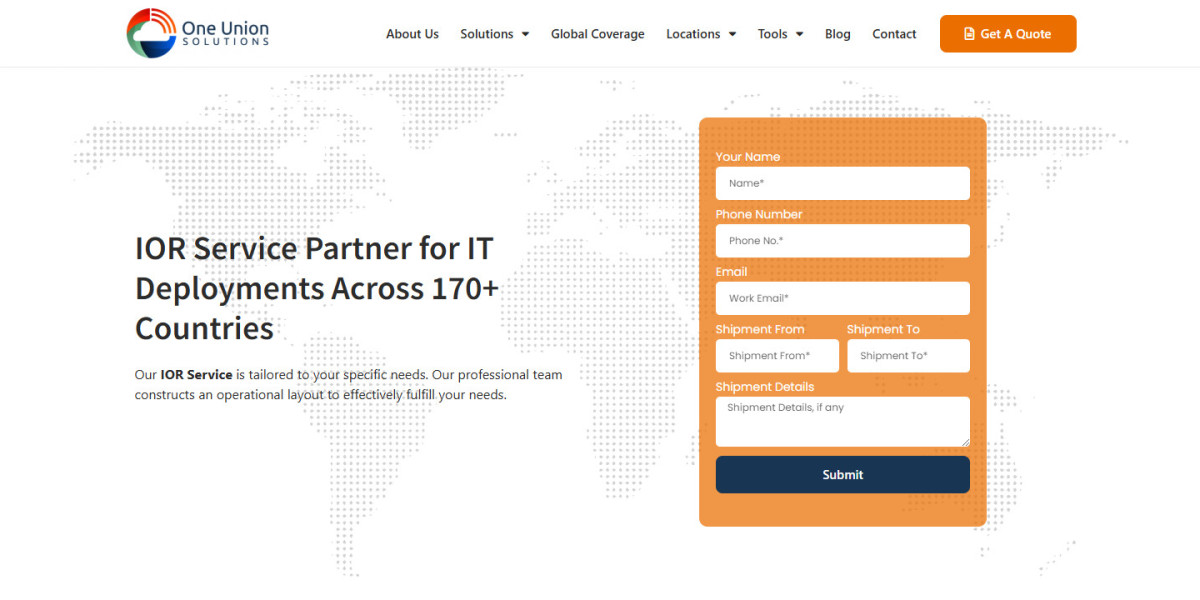Global trade is the lifeblood of modern business, enabling companies to expand their reach and meet the demands of diverse markets. Importing goods globally, however, is a complex process fraught with regulatory challenges, intricate documentation requirements, and compliance obligations. For businesses dealing with industries like medical devices, consumer electronics, or other regulated products, the stakes are even higher. This is where an Importer of Record (IOR) becomes an indispensable partner.
What Is an Importer of Record (IOR)?
An Importer of Record is a legal entity or service provider responsible for ensuring that imported goods comply with the regulations and customs requirements of the destination country. The IOR assumes accountability for documentation, licensing, and payment of duties and taxes, essentially acting as the "official importer" on behalf of the business.
In essence, the IOR simplifies international shipping by taking on the logistical and legal complexities, allowing businesses to focus on their core operations.
Why Is an Importer of Record Essential?
Importing goods involves a multitude of tasks that demand expertise and attention to detail. Missteps in compliance or documentation can result in shipment delays, penalties, or even the confiscation of goods. Here’s how an IOR plays a critical role in mitigating these risks:
1. Navigating Regulatory Compliance
Every country has specific import regulations, which vary depending on the product type and its intended use. Medical devices, for example, often require certifications like FDA or CE approvals, while consumer electronics may need adherence to safety and electromagnetic compatibility standards.
An IOR ensures:
- Proper licensing and permits are in place.
- Compliance with local laws, including health and safety regulations.
- Accurate classification of goods under the Harmonized Tariff Schedule (HTS).
2. Managing Documentation
Accurate documentation is the backbone of a successful import process. The IOR prepares and verifies critical paperwork, including:
- Commercial invoices.
- Packing lists.
- Certificates of origin.
- Import permits.
- Customs declarations.
By handling these documents meticulously, the IOR minimizes the risk of errors that could lead to costly delays or fines.
3. Facilitating Smooth Customs Clearance
Customs clearance can be a daunting process, especially for regulated industries. The IOR liaises with customs authorities, ensures timely payment of duties and taxes, and resolves any issues that may arise during inspection.
4. Mitigating Risks and Penalties
Non-compliance with import regulations can result in significant financial and reputational damage. An experienced IOR anticipates potential hurdles and takes proactive measures to avoid penalties, such as:
- Ensuring goods are accurately labeled and packaged.
- Verifying that goods meet all import restrictions.
- Managing duty and tax exemptions, where applicable.
5. Enabling Global Growth
For businesses looking to scale internationally, an IOR offers the expertise to navigate new markets with ease. This is particularly important in industries with stringent regulatory requirements, where even minor errors can disrupt operations.
Industries That Benefit from IOR Services
While the need for an IOR spans across various sectors, some industries particularly rely on these services due to the complexity of their products or the critical nature of compliance.
1. Medical Devices
Importing medical devices involves adhering to rigorous standards to ensure patient safety and regulatory compliance. An IOR ensures that:
- Devices meet all regulatory approvals, such as FDA or EU MDR.
- Proper documentation and labeling requirements are fulfilled.
- Timely delivery is maintained, avoiding disruptions in healthcare services.
2. Consumer Electronics
Consumer electronics are subject to regulations like RoHS, WEEE, and EMC standards. The IOR handles:
- Compliance with environmental and safety regulations.
- Proper classification for customs purposes.
- Managing warranties and post-import servicing requirements.
3. Pharmaceuticals
Pharmaceuticals face strict scrutiny during importation. An IOR ensures:
- Proper storage and transport conditions during transit.
- Compliance with import licenses and health certifications.
- Accurate tracking and reporting to local health authorities.
How to Choose a Trusted IOR
Selecting the right IOR is crucial for seamless global operations. Here are key factors to consider:
1. Expertise in Your Industry
Ensure the IOR has experience dealing with the specific regulations and requirements of your industry. For example, medical device companies should look for an IOR with a track record of navigating health authority approvals.
2. Global Presence
A well-established IOR with a global network can provide localized expertise, ensuring compliance with the specific regulations of each country.
3. Technological Capabilities
Modern IORs leverage technology to streamline processes, offer real-time shipment tracking, and provide digital access to documentation.
4. Transparent Pricing
Choose an IOR that offers clear and competitive pricing without hidden fees. This ensures cost predictability and avoids unexpected financial burdens.
Benefits of Partnering with an IOR
For businesses engaged in global trade, partnering with an IOR offers a range of advantages, including:
Reduced Administrative Burden
By outsourcing compliance and documentation tasks, businesses can allocate resources more efficiently.Faster Time-to-Market
An IOR accelerates the import process by anticipating challenges and ensuring all requirements are met in advance.Improved Compliance and Accuracy
Professional expertise reduces the risk of errors, ensuring goods are delivered without delays or penalties.Focus on Core Business Activities
Businesses can concentrate on growth strategies while the IOR handles the intricacies of importation.
Conclusion
Global trade offers immense opportunities, but the complexities of importing goods can be overwhelming without the right expertise. An Importer of Record (IOR) serves as a trusted partner, managing compliance, documentation, and customs clearance with precision. For industries like medical devices, consumer electronics, and pharmaceuticals, an IOR is essential for hassle-free imports and uninterrupted growth.

